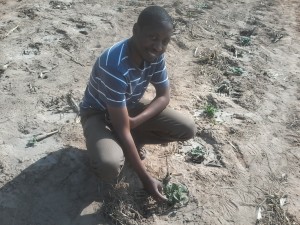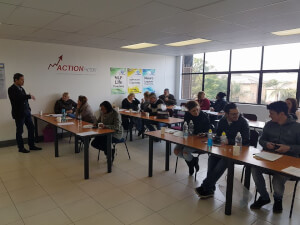Zimbabwe potato farmers’ curse
As I moved around Zimbabwe with my team of farming experts advising both sack potato farmers and conventional potato farmers, I have come to the conclusion that all are faced with one curse – late blight. I have seen motivated sack potato farmers hospitalized and some on medication after their investments got eroded by this one single curse. I know I did write an article which covers potato diseases and how best to counter late blight. In the potato farming investment trainings we hold, we have made sure that the issue of disease be taught in depth as it’s one of the biggest threats to the investment. I have seen a promising glowing potato farm in Zimbabwe be reduced to nothing in as little as 3 days by these diseases. I met a Professor in crop science who gave me a research jornal to go through and I thought of sharing the findings here. Could this be the future of Potato Farming?
Which is better, fighting disease with chemistry or genetics?
I know this question will start a war of words which is exactly what we need. The debate will go on to other crop types but at the moment let’s restrict it to potato farming in Zimbabwe. In your opinion, would you rather fight disease with genetics or with chemistry? Fighting disease with chemistry is what we do every day and it involves the use of pesticides, fertilizers and other chemicals that we use to enhance the harvest. For the record, late blight is the most expensive potato disease to combat and also the most expensive in terms of losses if it takes its rule.
Fighting this disease especially when you grow your potatoes in summer might need more than 10 sprays. If you are a serious potato farmer, perhaps you should know how late blight contributed greatly to the famous Irish famine around 1840. British scientists claim to have found a way to grow potatoes which will be resistant to late blight. Their answer will definitely get mixed remarks from both farmers and consumers. The answer is genetically modified potatoes. The study has been going on for more than three years now and scientist are convinced that this could be the way. The seed will be more expensive to plant but they claim cheaper than the costs incurred on fight late blight.
The risk
I chuckled when I came to this part. Nobody knows how this variety tastes because nobody has been allowed to test them. The major fear that has gripped the populace on genetically modified foods is the unknown-unknown effects they may have to our health. Zimbabweans have always kind of resisted genetically modified products. As with the rest of the world, the Zimbabwean consumers may likely not be interested in buying genetically modified potatoes.
The conclusion
To my fellow Zimbabwean sack potato farmers and conventional potato farmers, this may just be worthless information for now but who knows what tomorrow holds, you may find this variety on the shelves and see yourself faced with a choice between the traditional varieties or the new varieties just as we did with true potato seed (TPS). Leave your comments below on what you think about the best ways to fight disease (chemistry or genetics). Don’t forget to follow us on Facebook and twitter.
To your continued success





Honestly I feel that it is time Zimbabwe economy accepted some genetically modified products but still kept the organic produce on the market to give our people the option of choice. Nothing in this world comes without its demerits. More so, many families starve because they cannot even get the basics.Zimbabwe used to be the food basket of Africa but now many go over to neighbouring countries such as South Africa and Namibia and still eat these genetically modified products just to survive. Many also import so many of these foods as well because there is nothing on the shelves in our supermarkets. I think it is time our economy evolved with all the socio-economic and technological changes before our economy becomes obsolete…”A bird in the hand is worth 2 in the bush”…